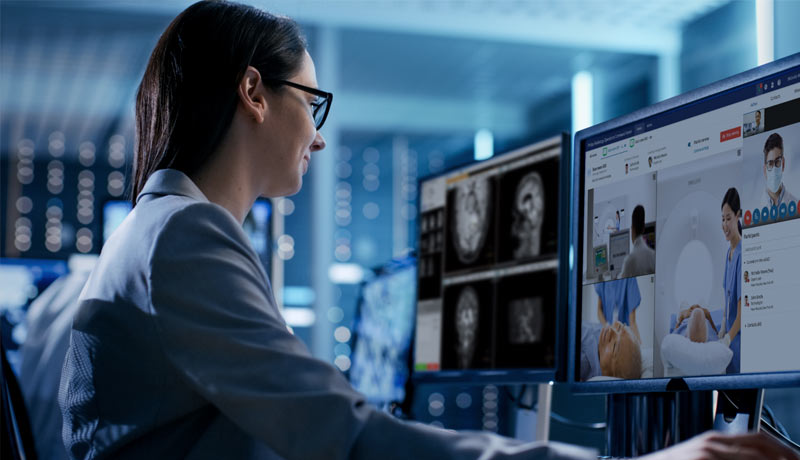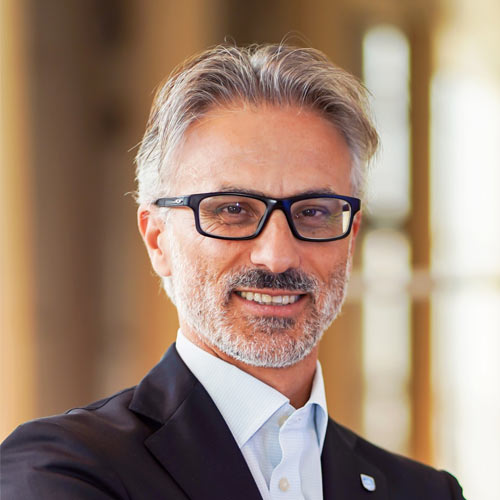
At Arab Health 2022 Dubai, Royal Philips will present its portfolio of AI-enabled, scalable, and smart connected technologies that are assisting in the development of a more resilient, flexible, and sustainable healthcare system.

“Philips has long been at the forefront of developing and deploying solutions that enable more precise, more predictive, more personalized and more accessible healthcare, while improving patient and staff experience,” said Vincenzo Ventricelli, CEO, Philips Middle East, Turkey and Africa (META).
He added, “With the healthcare systems across the Middle East primed to undergo a digital transformation, we are excited to showcase our newest patient-centric, AI-enabled systems and solutions designed to meet the needs of tomorrow at Arab Health this year,” adds Ventricelli.
“Strategic initiatives and partnerships will continue to be central to making the world healthier and more sustainable, which is our ultimate ambition,” saidVentricelli. “Arab Health provides a valuable platform to continue driving the changes we need and to co-create the future of patient-centric care.”
The company’s new and improved AI-enabled solutions take a holistic approach throughout the imaging and linked care organisation, focusing on key areas to help doctors handle today’s problems.
Countries across the Middle East and beyond have invested in the infrastructure needed to facilitate easier and faster adoption and deployment of digital technologies over the last two years, driven by the pandemic. This, combined with a majority of healthcare practitioners’ positive first-hand experience with telehealth and remote collaboration during COVID-19’s peak, as well as the emerging benefits of AI and the shift toward predictive analytics and precision medicine, has laid a solid foundation for continued digital transformation in the healthcare industry in the near term.
Through leading technology introductions, Philips’ solutions unveiled at Arab Health highlight how to achieve winning workflows in radiology, enable a clear care pathway with predictable outcomes in oncology, make informed decisions in critical care, and have confidence in cardiac diagnoses and procedures.
At Arab Health, Philips will unveil its new MR 5300 for customers in the META area. The patented BlueSeal magnet in this breakthrough 1.5T MRI system simplifies and automates complicated clinical and operational processes, ensuring constant quality and sustainability for outpatient imaging facilities and MR departments. The MR 5300 uses AI-driven VitalEyetouchless patient sensing and advanced algorithms to detect breathing, allowing a routine MR exam set-up to take less than a minute. This improves the MR experience for patients who have trouble holding their breath, overcoming a long-standing limitation of MR scans.
This breakthrough solution is designed to help boost MR productivity, speed up exams, empower clinicians to make informed clinical decisions, and control the costs of MR imaging.
Philips is also demonstrating its newest precision diagnosis solution, the Spectral Computed Tomography (CT) 7500, which uses a spectral detector. This new intelligent technology consistently produces high-quality spectral images for every patient on every scan, helping to enhance disease characterisation and reduce rescans and follow-ups while using the same dosage levels as traditional scans. The spectral workflow is fully integrated, allowing the technologist to quickly get the patient on and off the table – spectral chest and head scans take less than one second, and a full upper body spectral scan takes less than two seconds – while still providing high-quality imaging that allows the physician to quickly deliver a confident diagnosis and effective treatment plan for each patient.
By showcasing many disruptive breakthroughs at Arab Health, Philips is also highlighting how connectivity, smart systems, and the convergence of advanced technologies like AI and Big Data analytics can help bring the promise of patient-centric care to life:
The general care ward is home to a diverse group of individuals with varied medical problems and requirements. The clinical staff’s job is becoming increasingly challenging due to sicker patients, unexpected clinical deterioration, and decreased nurse-to-patient ratios.
Philips’ General Ward Solutions provide the next generation of smart vital sign monitoring systems, including a fully automated and adjustable early warning score (EWS) system for the hospital ward, allowing for quick responses to worsening patients.
The Phillips IntelliVue Guardian Solution, for example, easily integrates into current general ward infrastructure and combines vital sign monitoring and software for early detection and notification of at-risk patients. This AI-enabled automated early warning scoring system assists caregivers and Rapid Response Teams in identifying subtle signs of deterioration in a general floor patient’s condition at the point of care, hours before a potential adverse event, so they can respond sooner – in time to make a difference. The automated EWS from IntelliVue Guardian helps to reduce ICU transfers and readmissions, as well as adverse events and length of stay.
Customers may extend where, when, and how care is delivered with Philips’ telehealth solutions and capabilities, independent of the patient’s location. Virtual care can help monitor a variety of patients across the care continuum while preserving quality of care and improving staff allocation and productivity by using advanced clinical data across a patient’s care route to help spot important issues earlier.
Clinicians can connect with employees at the bedside and confer on personalised care using the Philips eICU, for example, even from a remote location. This means that a single centralised critical care team may oversee a large number of ICUs and share health data electronically in real time. This serves as a supplement to the bedside team, rather than a replacement, by providing additional support structures to the growing number of patients.
At Arab Health 2022, Philips will have a full team of specialists accessible to meet and engage with stakeholders in order to better understand and give comprehensive, vendor-neutral solutions that will guide and support stakeholders in achieving optimal business outcomes. Whether through strategic alliances, product innovation, insightful analytics, expert consultation, or managed technology services, Philips hopes to use the Arab Health platform to assist healthcare providers in the region in making informed investment decisions.